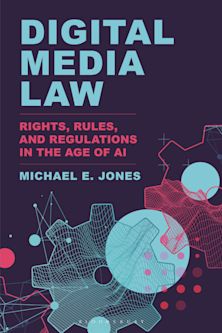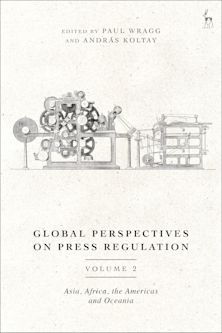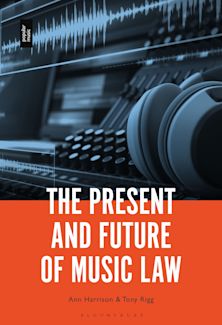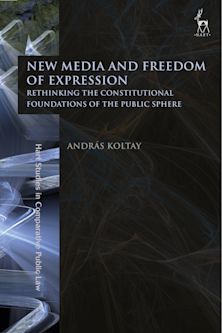This product is usually dispatched within 2-4 weeks
- Delivery and returns info
-
Flat rate of $10.00 for shipping anywhere in Australia
You must sign in to add this item to your wishlist. Please sign in or create an account
Description
Media law is a fast-developing area of scholarship that raises many high-profile and controversial questions. Recent issues include the use of privacy injunctions, the regulation of the press, the political power of media moguls, mass leaks of government information, and the responsibility of the digital media to prevent the spread of extreme content and fake news. This study looks at these issues and the key debates in media law. The book includes chapters examining the protection of personal rights to reputation and privacy, the administration of justice, the role of government censorship, the protection of the newsgathering process, the regulation of the media and the impact of digital communications. The analysis is grounded in an account of media freedom that looks at the important democratic functions performed by the media and journalism. Examining various key themes, this study shows how those functions continue to evolve in a changing political culture and also how the media are subject to a range of legal and informal constraints. The book asks whether the law strikes the right balance in protecting media freedom while preventing the abuse of media power, and considers the future of media law in the digital era. It is essential reading for students and scholars of media law alike.
Table of Contents
I. Introduction
II. Historical Background
III. The Protection of Media Freedom in UK Law
IV. Why Media Freedom is Different from Freedom of Expression
V. The Functions of the Media
VI. How is Media Freedom Protected?
VII. What is the Media?
VIII. Interferences with Media Freedom
IX. Conclusion
2. Personal Rights: Reputation and Privacy
I. Introduction
II. Defamation Law
III. Privacy
IV. The Public Interest
V. The Legal Protection of Personal Rights: Miscellaneous Provisions
VI. Remedies
VII. Conclusion
3. The Media and the System of Justice
I. Introduction
II. Contempt of Court
III. Open Justice
IV. Conclusion
4. Censorship, Obscenity and Secrecy
I. Introduction
II. Obscene, Indecent and Pornographic Content
III. Government Secrecy and National Security
IV. Terrorism
V. Conclusion
5. Newsgathering
I. Introduction
II. Protecting Journalists' Sources
III. Journalists' Material
IV. Surveillance of Newsgathering Processes
V. Freedom of Information
VI. A Public Interest Defence
VII. Conclusion
6. Media Regulation
I. Introduction
II. Regulating Content and Conduct
III. Media Ownership and Concentration
IV. Conclusion
7. The Digital Media
I. Introduction
II. Liability for Publications
III. User-generated Content
IV. Digital Intermediaries
V. Conclusion
8. Conclusion
I. The Changing Role of Public Opinion
II. Media Law, Information Flows and Informal Controls
III. The Methodology of Balancing in Media Law
IV. Media Effects
V. Media Power
Product details
| Published | 12 Jul 2018 |
|---|---|
| Format | Paperback |
| Edition | 1st |
| Extent | 416 |
| ISBN | 9781782256656 |
| Imprint | Hart Publishing |
| Dimensions | 244 x 169 mm |
| Publisher | Bloomsbury Publishing |
About the contributors
Reviews
-
Rowbottom's book is both welcome and timely. It is also, without doubt, a tour de force that not only significantly contributes to, but also moves forward, the media law canon... Rowbottom has managed to strike a very difficult balance: this book is accessible to a wide range of audiences, yet it provides a depth of analysis and insight that will make it invaluable to media law scholars, practitioners and students.
Peter Coe, Northern Ireland Legal Quarterly
-
The book gives the student reader a thorough and detailed account of the media law landscape. It offers up a wide-ranging and perceptive theoretical backdrop to debates on freedom of the individual versus freedom of the press, the thorny issue of privacy and where privacy rights lie, as well as incisive insights into topics as disparate as contempt, open justice and
The book capably takes in its stride recent developments in media law and journalism since the Leveson Inquiry and how the press has adapted to a new ethical and regulatory framework and examines whether there has indeed a been a 'chilling effect' on the media since thew hacking scandal.
A vigorous and challenging book, it is a must for students of media law and those interested in the new media landscape.Dave Porter, Manchester Metropolitan University

ONLINE RESOURCES
Bloomsbury Collections
This book is available on Bloomsbury Collections where your library has access.



































